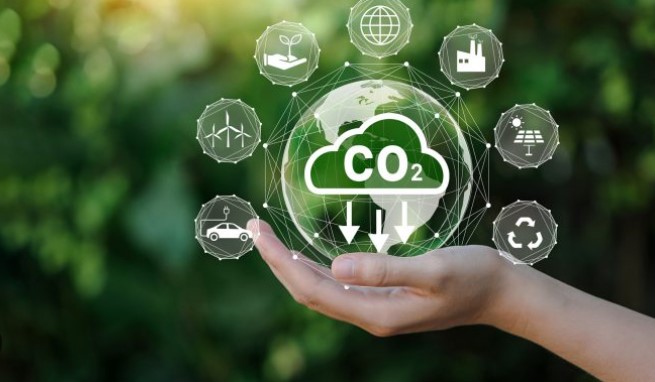What Is The Environmental Impact of Vehicle Recycling
The environmental impact of vehicle recycling is profound, offering numerous environmental benefits while mitigating the adverse effects associated with the automotive industry. Vehicle recycling is very important for a sustainable future, as it significantly reduces greenhouse gas emissions, conserves natural resources, and prevents environmental pollution.
We look the impacts of car recycling, car wrecking, and scrap yards on the environment, emphasising their roles in environmental stewardship and sustainable waste management.

The Process of Vehicle Recycling
Vehicle recycling involves several steps, starting with the car removal from its last owner to the proper disposal of hazardous components and materials. End-of-life vehicles are first taken to auto wreckers or scrap yards, where they are dismantled. Reusable car parts are salvaged, and hazardous substances such as lead acid batteries, engine oil, and brake fluid are safely extracted to prevent harmful pollutants from contaminating the environment.
The remaining junk cars are then crushed and shredded. This recycling process recovers valuable materials, especially recycling steel, which is one of the most significant contributions to conserving natural resources. The recovery of recyclable materials like metals reduces the need for processing virgin materials, thereby saving raw materials and less energy.
Environmental Benefits of Vehicle Recycling
Car recycling plays a vital role in reducing landfill waste. By recycling old cars and unwanted vehicles, the recycling industry prevents tons of waste from ending up in landfills, which helps in reducing environmental footprint and air pollution. Furthermore, recycling metals and other materials from vehicles conserves the planet’s finite resources, which are crucial for a more sustainable future.
One of the most significant environmental benefits of vehicle recycling is the reduction of greenhouse gas emissions. The recycling process requires less energy compared to manufacturing new materials from scratch, thereby decreasing the overall carbon emissions. This contributes significantly to combating climate change and promoting an eco-friendly future.

Impact of Car Wrecking and Scrap Yards on the Environment
Car wrecking and scrap yards play a crucial role in the vehicle recycling ecosystem. These facilities are responsible for the initial disposal and processing of end-of-life vehicles. When managed responsibly, auto wreckers ensure that hazardous materials are extracted and handled in an environmentally responsible manner. This prevents the release of harmful pollutants into the soil and water, protecting human health and local ecosystems.
However, the improper disposal of hazardous fluids and materials at scrap yards can lead to severe environmental pollution. Hazardous waste such as motor oil, coolant, and brake fluid can contaminate groundwater and soil, posing risks to local communities and wildlife. Therefore, adhering to responsible practices and raising awareness about the importance of proper disposal is essential for minimizing the environmental impact of car wrecking activities.
Economic Benefits of Vehicle Recycling
Beyond environmental advantages, vehicle recycling also offers significant economic benefits. The recycling industry generates substantial revenue through the sale of recycled materials and car parts. This industry also supports job creation, providing employment opportunities in auto wreckers, scrap yards, and recycling facilities. Additionally, by reducing the need for processing virgin materials, vehicle recycling helps in lowering the production costs for manufacturers, making the overall process more economical.
Innovations and Technological Advances in Vehicle Recycling
The vehicle recycling industry is continuously evolving, with innovative solutions enhancing the efficiency and effectiveness of the recycling process. Advanced technologies, such as automation and robotics, are being integrated into recycling operations to improve the sorting and processing of valuable resources. These innovative solutions not only increase the recovery rates of recyclable materials but also reduce the environmental footprint of recycling activities. Particular focus is now being put towards recycling of electric vehicles.
Moreover, the development of new methods for handling and neutralizing hazardous substances further mitigates the environmental impact of vehicle recycling. These technological advances contribute to a more sustainable future by ensuring that the environmental benefits of recycling are maximized while minimizing the risks associated with hazardous materials.
Raising Awareness and Promoting Environmental Stewardship
Promoting environmental stewardship and raising awareness about the importance of car recycling and proper disposal of end-of-life vehicles is crucial for achieving a sustainable future. Public education campaigns and community programs can help inform vehicle owners about the benefits of recycling their unwanted vehicles in an environmentally responsible manner. By fostering a culture of responsible practices, we can collectively reduce the environmental impact of car disposal and support the transition to a circular economy.
Towards a Sustainable Future
Vehicle recycling is a key component of sustainable waste management, offering significant environmental benefits such as reducing landfill waste, conserving natural resources, and lowering greenhouse gas emissions. Car wrecking and scrap yards play an essential role in this process, provided they adhere to responsible practices to prevent environmental pollution. The economic advantages of vehicle recycling further underscore its importance, while innovative solutions and technological advancements continue to enhance its efficiency and effectiveness.
By raising awareness and promoting environmental stewardship, we can ensure that the recycling industry contributes to a more sustainable future. Through collective efforts, we can minimize the environmental impact of the automotive industry and pave the way for a greener, more eco-friendly future.

